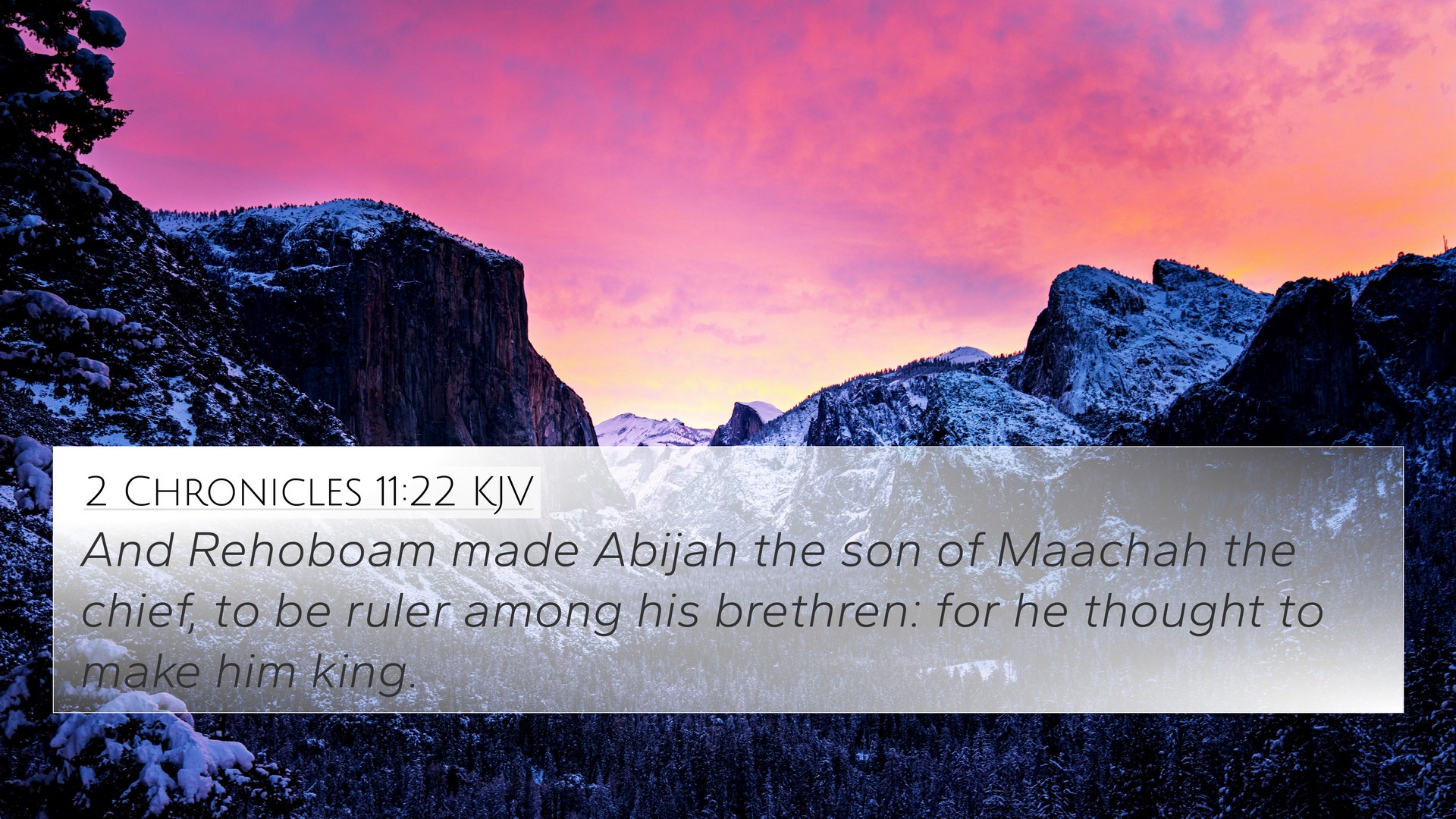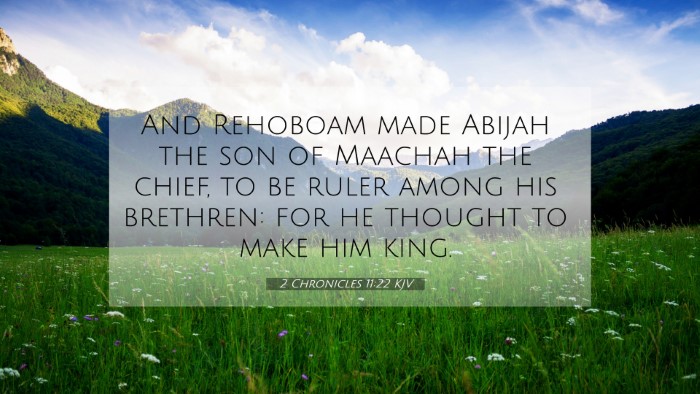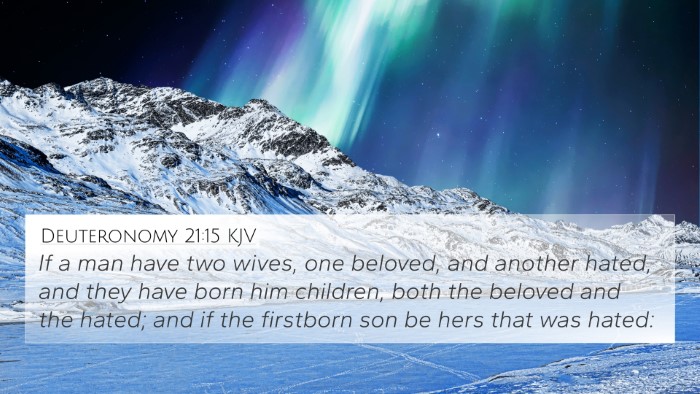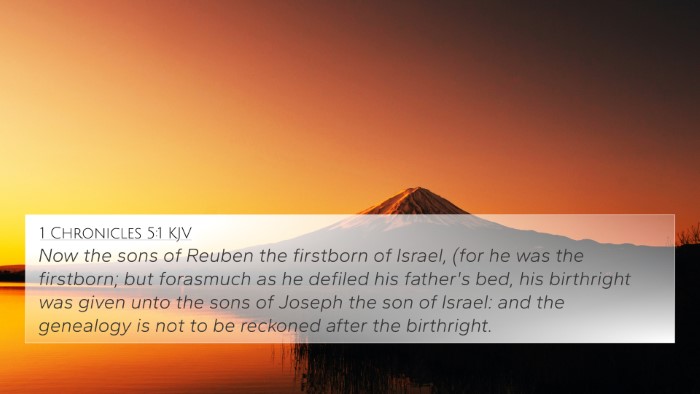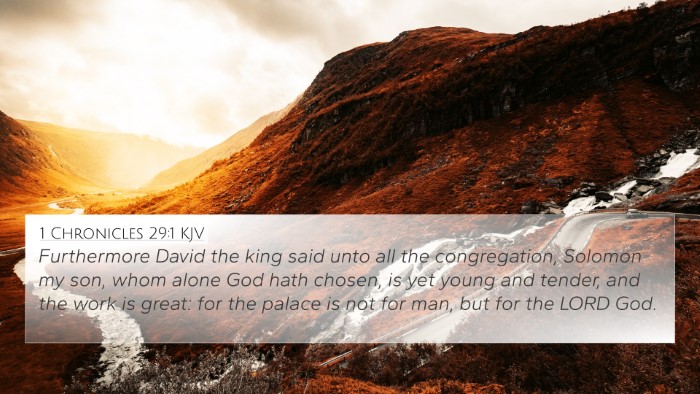Understanding 2 Chronicles 11:22
2 Chronicles 11:22 states: "And Rehoboam made Abijah the son of Maacah the chief, to be ruler among his brethren: for he thought to make him king." This verse highlights the significance of Abijah’s appointment as a chief ruler among the sons of Rehoboam. The choice reflects Rehoboam’s intentions and the underlying dynamics of leadership within the kingdom of Judah.
Summary of the Verse Meaning
This verse serves several purposes in understanding the broader narrative in 2 Chronicles and the historical context of Rehoboam’s reign:
- Leadership Dynamics: Rehoboam’s decision reveals his intention to establish a clear line of succession and his attempt to consolidate power. It can be interpreted as a response to the factionalism that arose during his kingship.
- Family Relations: The verse underscores the importance of familial relations in leadership succession, hinting at the influences of mothers and heritage in the decisions made by kings.
- Divine Providence: The commentaries often reflect on God's sovereignty in the choices made by kings, suggesting that even human decisions are often within the divine plan.
Commentary Insights
The exploration of this verse can be deepened with insights from well-regarded public domain commentaries:
- Matthew Henry: He highlights Rehoboam’s thought process, noting that his choice of Abijah indicates a motive to strengthen his own position amid political unrest. Henry points out the implications of favoritism and the risks in kingship.
- Albert Barnes: Barnes provides an analysis of the sociopolitical context of Rehoboam’s reign. He emphasizes how the prioritization of blood relations can lead to both progress and potential instability, and he probes that Abijah’s mother, Maacah, also had influence in this decision.
- Adam Clarke: Clarke goes further in discussing the implications of Abijah’s appointment. He interprets it as a strategic move, suggesting that Rehoboam may have aimed to restore the lost authority of his family lineage. Clarke notes that such strategies often lead to broader spiritual ramifications.
Cross References to 2 Chronicles 11:22
This verse is interrelated with various other scriptural passages, enhancing the themes explored through cross-referencing:
- 1 Kings 14:31: This verse discusses Rehoboam’s lineage and the political backdrop of his reign in juxtaposition to his kingdom’s decline.
- 2 Chronicles 12:13: This passage outlines Rehoboam’s reign in Jerusalem, linking the leadership dynamics directly to the fate of his kingdom.
- 1 Kings 11:43: Here, the fate of Solomon and the division of the kingdom sets a precedent for Rehoboam's challenges in leadership.
- 2 Chronicles 13:1-2: It introduces Abijah himself, providing context on his character and legacy.
- 1 Chronicles 3:10-14: This genealogical record contextualizes Abijah’s lineage and the importance of family ancestry.
- Matthew 1:12: This New Testament reference traces the lineage of Christ, showing how pivotal figures relate across scriptures.
- Hosea 1:1-2: In studying prophetic insights, this assistance in understanding Rehoboam's kingship provides deeper spiritual contexts.
- Jeremiah 36:30: The importance of royal lineage and its implications in God's plans become more evident through those scriptures.
- 2 Kings 17:21-22: This verse provides insights into the ongoing struggles of the divided kingdom, supporting the themes found in 2 Chronicles.
- Luke 3:23-38: Linking genealogies serves to further establish how kingship in Israel connects to the lineage of Jesus.
Tools for Further Study
For deeper understanding and comparative Bible verse analysis, the following tools can aid in cross-referencing:
- Bible concordance - a comprehensive resource for finding specific terms and their occurrences across Scriptures.
- Bible cross-reference guide - a tool that delineates connections between various verses thematically and contextually.
- Cross-reference Bible study methods - techniques for exploring thematic and narrative links between verses.
- Bible reference resources - useful for identifying key scriptures that connect various Biblical themes.
- Bible chain references - highlighting the interconnectedness of scriptures for a more profound understanding.
Conclusion
Understanding 2 Chronicles 11:22 is enhanced by examining its relational dynamics within the text of the Bible. The connections between Bible verses enrich one's comprehension of the Scriptures as a cohesive narrative reflecting God's guidance through history.
Utilizing these cross-references and study tools enables believers and seekers to better explore the depths of the Bible, fostering a deeper appreciation of its teachings and connections between the Old and New Testaments.
